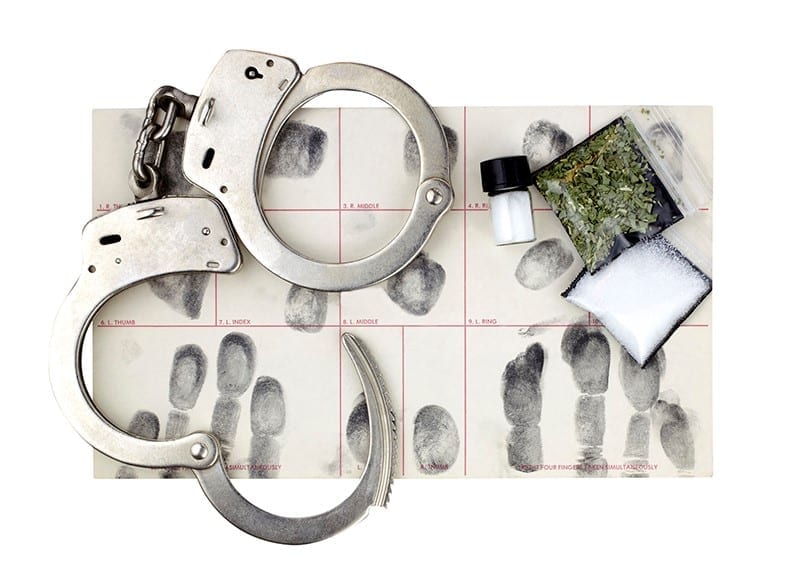A Guide to Illinois’ Drug Possession Laws
It doesn’t matter if you just have a little bit. Or if you forgot that it was there. Or if you were in the privacy of your own home.
The Illinois Controlled Substances Act criminalizes the knowing manufacturing, delivery, and possession of drugs. If you are in possession of a controlled substance, there are two crimes you could be charged with—possession, or possession with the intent to manufacture or deliver.
What Needs to be Proven for a Conviction?
If you’re going to be convicted for possession of a controlled substance, the prosecution has to prove three things:
- The identity of the controlled substance. The controlled substance needs to be identified as a certain controlled substance, counterfeit substance, or an analog of a controlled substance listed in Schedule I and II of the Act. These substances include opiates and their derivatives, hallucinogens, depressants, and stimulants.
- The defendant knowingly possessed the substance. This is important, because if you don’t have knowledge that you are in possession of the controlled substance in question, the prosecution will be unable to prove this aspect of the case.
- The substance was in the defendant’s control. There are two types of possession when discussing this element of proof:
- Actual possession: Actual possession is when a person has physical control over the illegal substance but does not require actual holding or touching of the substance when it is discovered.
- Constructive possession: Constructive possession is when a person doesn’t have physical control over the substance but the person still has the intent and capability to maintain control. An example of constructive possession could be if drugs were found in someone’s home or car.
Common Defenses for Drug Possession Charges
There are a number of useful defenses that you can use to try to beat your possession charges.
- Unlawful search and seizure. If the defendant’s Fourth Amendment rights are violated, the drugs can’t be used at trial.
- Drugs belong to someone else. A skilled defense attorney can try to prove the drugs aren’t yours and that they actually belonged to someone else.
- Lack of knowledge. If you are unaware that you are in possession of a controlled substance, your lack of knowledge can be used to defend your case.
Other defenses, such as having a prescription for the medication, entrapment, duress or compulsion, insanity, or infancy if the person is under 13 years old may also be used in drug possession defenses.
What are the Penalties for Drug Possession?
 The penalties for drug possession offenses depend on the type and the amount of the controlled substance. Fines and jail time vary according to the severity of the crime and whether there was intent to manufacture or deliver the substance you were in possession of.
The penalties for drug possession offenses depend on the type and the amount of the controlled substance. Fines and jail time vary according to the severity of the crime and whether there was intent to manufacture or deliver the substance you were in possession of.
Class X felonies are the most serious type of possession with intent offenses, punishable by a minimum jail sentence of 6-30 years and a maximum term of 15-60 years. Class X felonies often involve heroin, cocaine, fentanyl, or their analogs and, besides jail time, the defendant may also have to pay the “full street value” of the substance with a fine of up to $500,000.
If you’re in possession with intent of smaller quantities of Schedule I or II substances, there are Class 1, 2 and 3 felonies that are punishable by fines of up to $250,000, $200,000, or $150,000, respectively.
A conviction for possession of a controlled substance can range from the least serious Class C misdemeanor to a Class 1 felony, and anything not covered by that range is a Class 4 felony, punishable by a fine of up to $25,000.
And, of course, simply being charged means that you will be slapped with a criminal record that will follow you around for the rest of your life unless you do something about it.
If you have been arrested for drug possession, you should consult with a skilled drug offense criminal defense attorney today.
About the Author:
Andrew M. Weisberg is a former felony prosecutor who now serves as a defense attorney in the greater Chicago area. He has extensive experience in handling all types of criminal cases, from sex offenses and domestic violence to retail theft-related crimes, Murder, and drug crimes.







 Blog Home
Blog Home 










